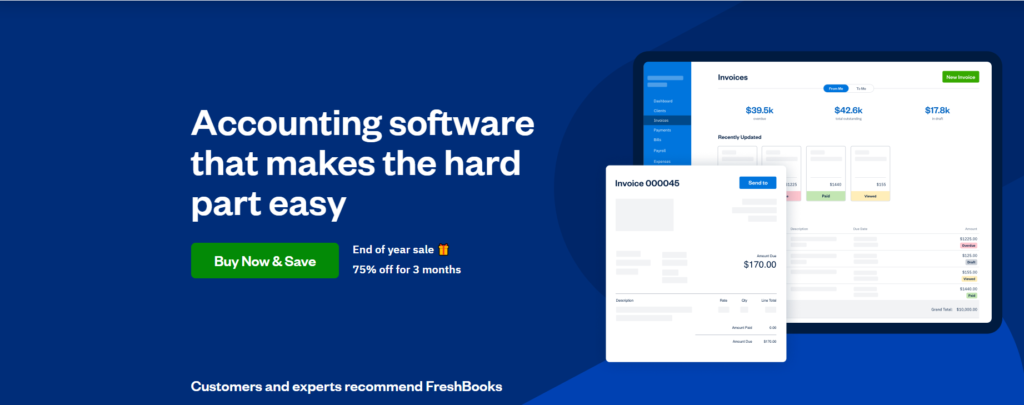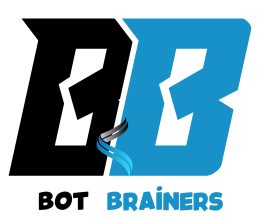Why are so many startups failing within their first few years? One of the most common reasons is poor financial management. Without the right tools, managing finances, tracking expenses, and staying compliant can become overwhelming. This is where accounting software for startups comes in. With the right software, startups can save time, reduce errors, and stay on top of their finances from day one. Whether you’re running a small business or planning to scale quickly, choosing the best accounting software is crucial. It allows you to focus on growing your business while automating critical financial tasks like bookkeeping, invoicing, and tax reporting. Accounting software for startup businesses can be a game-changer by providing real-time financial insights, ensuring tax compliance, and simplifying the overall accounting process. Let’s explore why every startup should invest in reliable accounting software to lay a solid foundation for financial success.
Why Startups Need Accounting Software?
Starting a business is exciting, but managing its financial aspects can quickly become overwhelming, especially for startups that may not have dedicated accounting teams. Accounting software for startups is essential because it streamlines financial management, reduces the risk of human error, and helps businesses stay compliant with tax laws. Without the right tools, it’s easy to make costly mistakes in bookkeeping or overlook crucial financial insights that could impact the growth of the business.
For startup businesses, the right accounting software can be the difference between success and failure. Most startups operate with limited resources, and every penny counts. Manual accounting methods or outdated tools are not only time-consuming but also inefficient in today’s fast-paced business environment. Best accounting software for startups offers automation features that handle invoicing, tracking expenses, and generating financial reports, freeing up valuable time to focus on scaling the business.
Moreover, accounting software for startups helps with tax compliance. In a growing business, tax reporting can quickly become complex. Software specifically designed for startup businesses can generate accurate reports, ensure timely submissions, and keep you updated on tax regulations. This reduces the chances of fines or penalties, which could be devastating for a startup.
FreshBooks: Best Accounting Software for Startups
Selecting the right accounting software for startups can be a daunting task given the many options available.
FreshBooks is a user-friendly accounting software that’s ideal for startups that need a simple solution for managing invoices, expenses, and time tracking. Its easy-to-navigate interface makes it a great choice for entrepreneurs and small business owners with limited accounting knowledge. FreshBooks also includes features such as automated invoicing, expense tracking, and recurring billing, which can save valuable time for startup businesses.
Pricing: FreshBooks offers plans starting at $15/month, which includes basic features for invoicing and expense management.
Pros:
- Extremely user-friendly
- Excellent invoicing capabilities
- Time tracking for projects
Cons:
- Limited advanced accounting features
- Higher-tier plans can be expensive for smaller startups
Each of these accounting software solutions offers unique benefits, and the best choice for your startup depends on the specific needs of your business. Whether you prioritize ease of use, comprehensive features, or affordability, there’s a solution on this list that can help streamline your financial processes. By choosing the right software now, you can set your business up for long-term financial success.

For more information about the best accounting software visit our other blog post.
Key Features to Look for in Accounting Software for Startups
When selecting software for startups, it’s essential to choose a solution that meets both the immediate needs of the business and can grow with it. The right features will not only make day-to-day financial management easier but also enable accurate tracking and reporting, which is crucial for making informed business decisions. Here are the key features to look for in accounting software for startups:
Budget-Friendly Pricing
Startups often operate on tight budgets, so finding affordable accounting software is essential. Many providers offer tiered pricing plans based on the features required, allowing businesses to scale their investments as they grow. While it’s tempting to opt for free software, the lack of features and limited support can lead to challenges down the line. Choosing the best accounting software with a reasonable price point that offers essential tools, such as invoicing and expense tracking, is key to keeping costs low while still managing finances effectively.
Ease of Use and Intuitive Interface
For startup businesses with no dedicated accounting department, ease of use is one of the most important factors to consider. A user-friendly interface helps ensure that the software can be easily adopted by employees or business owners who may not have an accounting background. Accounting software for startup businesses should have clear navigation, automated functions, and simple workflows for tasks like generating reports, managing invoices, and tracking cash flow. The more intuitive the software, the less time your team will spend on training and troubleshooting.
Scalability
As a startup grows, so will its financial needs. It’s essential to select software that can scale alongside the business. Look for accounting software that offers flexible features that can accommodate increasing complexity in accounting processes, such as inventory management, multi-currency support, or advanced tax reporting. Accounting software should have the capacity to grow with your business, whether it’s by offering additional integrations or simply by providing more detailed financial insights.
Integration with Other Tools
Startups typically use a variety of tools to manage different aspects of the business, including payroll systems, customer relationship management (CRM) software, and e-commerce platforms. One of the most valuable features of accounting software is its ability to integrate seamlessly with these tools. For example, bookkeeping software for startups should connect with payment processors to automatically import transactions or integrate with your CRM to track revenue and expenses related to customer relationships. These integrations help eliminate manual data entry and ensure your financial data remains accurate across all systems.
Automated Bookkeeping and Expense Tracking
Automating tedious tasks like bookkeeping and expense tracking is a significant advantage of using accounting software. Automation reduces the likelihood of human error and ensures consistency in financial data. The software can automatically categorize expenses, track mileage, and generate expense reports, helping startups stay on top of their budgets and ensuring accurate financial reporting. Bookkeeping software for startups also provides real-time tracking, making it easy to monitor cash flow and make adjustments as needed.
Tax Management and Compliance
Tax compliance can be a major challenge for startups, especially when they’re unfamiliar with ever-changing tax laws. The right accounting software can simplify this process by automatically calculating taxes, generating tax reports, and providing reminders for tax deadlines. These tools can help businesses remain compliant with local, state, and federal tax laws, reducing the risk of penalties or missed filings. By having a tool that tracks tax liabilities, startups can avoid costly mistakes and focus on growing their business.
These key features are essential for accounting software to ensure seamless financial management. When selecting the right solution, it’s important to prioritize affordability, scalability, user-friendliness, and integration capabilities. By choosing software that meets these criteria, startups can set themselves up for long-term financial success and avoid unnecessary headaches down the road.
Benefits of Using the Right Accounting Software for Startups
Choosing the right accounting software is one of the most impactful decisions a startup can make when it comes to managing finances. The right solution can transform a startup’s financial management, ensuring efficiency, accuracy, and long-term success. Below are some of the key benefits that accounting software for startups offers, making it an indispensable tool for new businesses looking to scale and thrive.
1. Time-Saving Automation
One of the most significant benefits of accounting software for startups is automation. Startups are often short on time and resources, so anything that can be automated is a game-changer. With accounting software, manual processes like data entry, expense categorization, invoicing, and financial reporting are automated, saving valuable time. For example, bookkeeping software for startups can automatically track expenses, categorize transactions, and generate financial statements in real-time. This allows business owners and teams to focus more on strategic tasks that drive growth, such as marketing or product development.
Automating tasks that would traditionally require hours of manual work also reduces the chances of human error, ensuring that your financial records are more accurate and reliable. In the early stages of a business, time is a precious commodity, and automating financial tasks frees up the time needed to focus on scaling the company.
2. Real-Time Financial Insights
Startups need to make quick, informed decisions, and accounting software for startups provides real-time financial data that helps business owners do just that. With access to updated reports on cash flow, profit and loss, and balance sheets, startups can gain a deeper understanding of their financial health at any given moment.
For instance, best accounting software typically offers customizable dashboards that provide at-a-glance views of key metrics. This enables business owners to identify trends, spot potential issues, and make informed decisions quickly. Real-time insights also help startups forecast future cash flow, plan budgets effectively, and identify cost-saving opportunities. By having immediate access to this information, startups can take proactive steps to avoid financial pitfalls and ensure business growth.
3. Accurate Tax Compliance
Tax compliance can be a daunting task for startups, especially when navigating complex tax laws. Incorrectly filed taxes or missing deadlines can result in penalties that could significantly impact a startup’s finances. The right accounting software for startups simplifies this process by automatically calculating tax liabilities, generating tax reports, and keeping you on track for deadlines.
Features like tax deduction tracking, sales tax reports, and automated filing reminders are commonly found in accounting software for startup businesses. These features ensure that all tax-related matters are managed with accuracy and compliance, allowing startup founders to focus on growing their businesses rather than worrying about tax penalties. With the software generating accurate reports, you’ll also have a clear and organized record of your taxes, making it easier for accountants to handle filings during tax season.
4. Scalability to Grow with Your Business
One of the major advantages of using accounting software is its scalability. As a startup grows, its financial needs will become more complex. A software solution designed for startup businesses should have the ability to grow with you. Whether you need to add more users, manage multiple revenue streams, or handle complex inventory and payroll management, scalable accounting software can accommodate these evolving needs.
By investing in scalable accounting software for startups, businesses can avoid the hassle of switching to a new system as they expand. The ability to seamlessly upgrade features, integrate with additional business tools, or manage larger volumes of transactions will save both time and money in the long run.
5. Enhanced Collaboration and Accessibility
Modern accounting software for startups often comes with cloud-based options, allowing for better collaboration among team members, accountants, and financial advisors. Cloud accounting software allows multiple users to access financial data from anywhere, at any time, as long as they have an internet connection. This is particularly beneficial for remote teams or startups with several employees working across different locations.
The collaborative features of cloud-based software also improve communication between team members. For instance, multiple users can simultaneously view and update financial data, ensuring that everyone is on the same page. This enhances workflow efficiency, making it easier for teams to manage finances in real-time.
6. Improved Financial Decision Making
Ultimately, the goal of using accounting software for startups is to make better financial decisions. By automating processes, providing real-time data, and ensuring accuracy, accounting software enables startup owners to have a clear view of their financial situation. This visibility allows for informed decision-making when it comes to budgeting, pricing strategies, investment opportunities, and more.
With the best accounting software, owners can track key performance indicators (KPIs), compare different financial scenarios, and predict future trends. This enables them to make decisions that are backed by data, ultimately leading to smarter business strategies and improved profitability.

How to Choose the Right Accounting Software for Your Startup?
Selecting the right accounting software for startups can be a challenging task, given the wide variety of options available. The decision requires careful consideration of the software’s features, pricing, and how well it aligns with the unique needs of your business. Below are some essential factors to keep in mind when choosing the best accounting software for your startup:
1. Understand Your Startup’s Needs
The first step in choosing the right accounting software for startup businesses is to assess your specific needs. Startups vary widely in terms of industry, size, and business model, so there is no one-size-fits-all solution. For instance, if you’re a service-based business, you may prioritize invoicing and time-tracking features. On the other hand, an e-commerce startup might need software that integrates with online sales platforms and tracks inventory in real-time.
To determine your needs, ask yourself the following questions:
- What financial tasks do you want to automate (e.g., invoicing, expense tracking)?
- Will you need to track inventory, manage payroll, or handle multi-currency transactions?
- Do you need to generate financial reports or analyze cash flow regularly?
- How many users will need access to the software?
Identifying these specific needs will help you narrow down your choices to software that offers the right features for your business.
2. Evaluate Ease of Use and User Interface
As a startup, you may not have dedicated accounting personnel. Therefore, the software you choose must be user-friendly and intuitive. Accounting software should simplify complex tasks without requiring an accounting background. The user interface should be clean, easy to navigate, and offer simple workflows for tasks like invoicing, reporting, and expense management.
Consider trial versions or free demos of the software to gauge ease of use before committing. This will allow you to explore the software’s features and ensure that it’s something your team can quickly adapt to, saving you time on training and implementation.
3. Consider Pricing and Value for Money
Pricing is a crucial factor for startup businesses, as they typically work with limited budgets. While it might be tempting to choose the cheapest option available, it’s important to balance cost with functionality. Some software may offer lower initial pricing but could require costly add-ons or upgrades to access the features you need.
Startups should focus on finding the best accounting software for startups that provides essential features at an affordable price. Many solutions offer tiered pricing, allowing businesses to choose a plan that fits their current size and upgrade as they grow. Additionally, some providers offer free trials or money-back guarantees, so you can test the software to see if it meets your needs before making a long-term investment.
4. Look for Scalability and Growth Potential
Your startup is likely to grow, and your accounting needs will evolve. The accounting software you choose should be able to scale with your business as it expands. Look for software that offers advanced features, such as multi-currency support, payroll management, and sophisticated reporting tools, which can be enabled as your business grows.
Additionally, check if the software can integrate with other business tools or third-party apps that you might need in the future, such as CRM software, inventory management, or e-commerce platforms. This will help ensure your accounting system remains flexible and adaptable as your business changes.
5. Ensure Strong Customer Support
Strong customer support is an often overlooked but crucial factor when selecting accounting software for startups. The software should offer reliable support channels, including phone, email, or live chat, in case you encounter any issues or need assistance with setup. Startups typically don’t have the luxury of an in-house IT team, so responsive support is vital for resolving problems quickly and minimizing downtime.
Check user reviews or testimonials to evaluate the quality of customer support for the software you’re considering. A responsive support team can help resolve technical issues, answer questions about features, and ensure that you’re getting the most out of your accounting software.
6. Prioritize Security and Data Protection
As a startup, safeguarding sensitive financial data is paramount. The accounting software you choose should have robust security measures in place, including encryption, secure cloud storage, and multi-factor authentication. Ensure the software complies with relevant data protection regulations, such as GDPR or other local data privacy laws, to protect your financial information from cyber threats and unauthorized access.
Verify the software provider’s security credentials and inquire about data backup procedures to ensure your data is safe in case of technical failures or breaches.
7. Check for Integrations with Other Business Tools
Your startup likely uses other business tools such as payment processors, CRMs, inventory management systems, and e-commerce platforms. The accounting software for startups you choose should integrate smoothly with these systems to save time and reduce the risk of data entry errors. Integrations help ensure that transactions are automatically recorded and that your financial data remains consistent across all tools.
For example, if you use an online payment platform like PayPal or Stripe, choose accounting software that integrates directly with these platforms to automatically import payments and sales data. This eliminates manual entry and ensures that your financial data is accurate and up to date.
Common Mistakes Startups Make When Using Accounting Software
Adopting accounting software is an excellent step toward streamlining financial management. However, startups often make avoidable mistakes that can hinder the software’s effectiveness. Here are five common pitfalls and how to steer clear of them:
1. Choosing Software That Doesn’t Fit Business Needs
One of the biggest mistakes startups make is selecting accounting software without fully understanding their requirements. Opting for a solution that is too basic or overly complex can result in inefficiencies and frustration.
How to Avoid It:
Clearly define your startup’s needs before researching options. Consider factors such as invoicing, expense tracking, tax management, and integrations with other tools. Select software that aligns with your current operations and has the scalability to grow with your business.
2. Overlooking Security Measures
Many startups focus on features and price but neglect the importance of robust security. This oversight can expose sensitive financial data to cyber threats or unauthorized access.
How to Avoid It:
Choose software that includes strong security protocols, such as encryption and multi-factor authentication. Restrict user access to financial data based on roles, and regularly update passwords and security settings to stay protected.
3. Failing to Regularly Review Automated Processes
Automation is one of the greatest advantages of accounting software, but startups often rely on it too heavily. Automated categorization or invoicing might occasionally misinterpret data, leading to errors in financial records.
How to Avoid It:
Set aside time to review automated processes periodically. Perform checks to ensure expense categories, invoices, and tax calculations are accurate, making adjustments as needed to maintain reliable records.
4. Ignoring Reporting and Analytics Features
Startups often focus on day-to-day financial tasks, like invoicing and expense tracking, while overlooking the advanced reporting and analytics features that most accounting software offers.
How to Avoid It:
Leverage the software’s reporting tools to analyze your startup’s financial performance. Regularly review key metrics such as cash flow, profitability, and expense trends to make informed business decisions and plan for growth.
5. Skipping Employee Training
Implementing accounting software without proper training can result in inefficient usage, errors, or underutilization of key features. Employees who are unfamiliar with the system may struggle to complete even basic tasks.
How to Avoid It:
Provide training for everyone who will use the software. Many providers offer free resources, tutorials, or webinars to help teams learn the system. A small investment in training can ensure your startup maximizes the software’s capabilities and avoids costly mistakes.
By avoiding these common mistakes, startups can unlock the full potential of their accounting software. From selecting the right solution to using its features effectively, a thoughtful approach can lead to better financial management and a smoother path to growth. With proper setup, training, and regular oversight, accounting software becomes a powerful tool for long-term success.
Conclusion
Managing finances effectively is one of the cornerstones of a successful startup, and choosing the right accounting software for startups can make all the difference. From automating routine tasks to providing actionable financial insights, modern accounting tools empower startups to focus on growth while maintaining accuracy and compliance. However, success depends on selecting software that meets your specific needs, avoiding common pitfalls, and fully leveraging its features.
Remember, the best accounting software for startup businesses should not only fit your current requirements but also scale as your business grows. Take the time to research, customize, and integrate the solution into your operations to maximize its potential. With the right approach, accounting software becomes more than just a tool, it’s a strategic partner that simplifies financial management and supports your startup’s journey to success. Equip your business with the right system, and watch your startup thrive!


